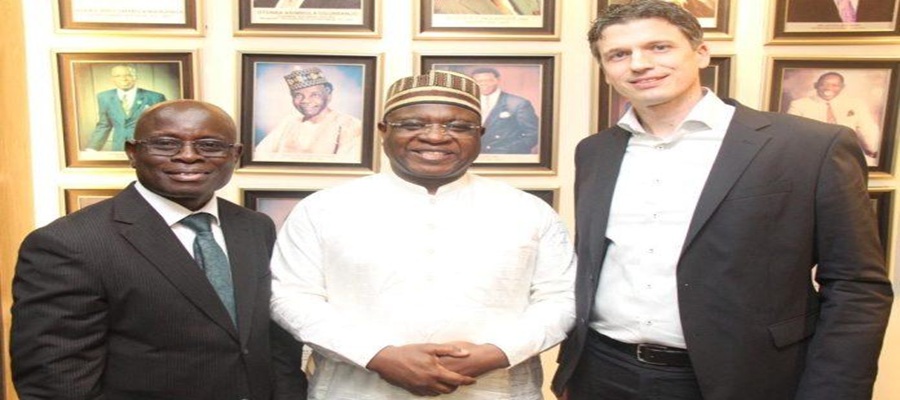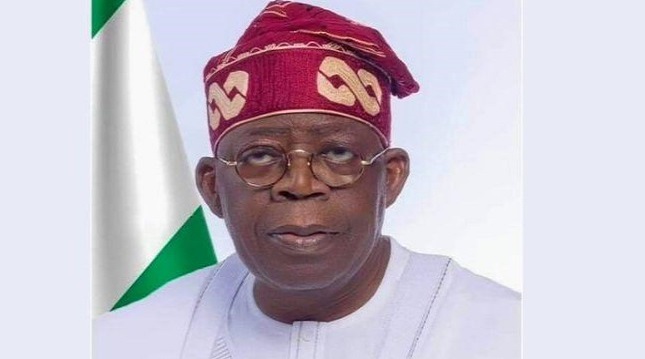News
Revealed: Reason for Rise and Rise of Esusu
The less than average performance of Nigeria’s economy is as a result of the rapid growth of the informal financial sector that often, ubiquitous, invisible and irregular economic activities outside the purview of government regulation, Nigeria CommunicationsWeek can now reveal.
Investigations revealed that the activities of this sector have far reaching effects on the whole economy especially because of the shadowy nature of business there.
The most common type of the informal finance is the Esusu in Yoruba, lsusu or Utu in Igbo and different names in different parts of the country.
Though some Esusu operate with written laws; most are without modus operandi and there is no guarantee that contributions (mostly fixed amount periodically or accumulated funds) will reach the beneficiaries.
Nigeria CommunicationsWeek gathered that the general practice is that the Esusu associations contribute a fixed amount periodically and give all or part of the accumulated funds to one or more member(s) in rotation until all members have benefited from the pool.
Elsewhere, I A. H. Ekpo and 0. J. Umoh, both financial experts discovered that there are also informal money lenders, saving and credit associations and credit unions.
Money lenders are believed to be highly exploitative with high rates of interest through which they extract economic surplus provided by peasant labour, capital and land.
“The saving and credit associations as well as credit unions operate in more formalised ways than the Esusu associations. They may or may not be registered under any legislation,” they added.
The rapid growth of the informal sector was encouraged by formal financial institutions which attached stringent conditions to certain practices like granting of loans as well as inability of funds made available by existing banks to reach the poor segment of the population.
The frequent collapse of financial institutions also increased the relevance of the informal financial institutions while most people prefer to keep their money under their pillowcases and under mattresses.
The activities of the informal finance sector have profound impact on the whole economy accounting for 75 per cent of the money outside the banking system.
Femi Akinware, CEO, Tagattitude Nigeria told Nigeria CommunicationsWeek that if a significantly higher percentage of money in circulation is brought into the banking system, there would be a lot more activities in the economy.
“There would be a lot more lending, a lot more business support and a lot more formal economy and our GDP will bring the country the hope of delivering her promises,” he said
Nodding in agreement, Ekpo and Umoh said that the informal sector in Nigeria has no tendency to wither, adding that it must be sustained for optimum contribution to the growth of the economy.
They called on the government to encourage and empower the informal sector through the provision of conducive policy and physical conditions.
As the condition is being awaited, retail banking has been identified as a way to bring money into the banking system, focusing on households and small businesses.
Michael Lafferty, chairman, Lafferty Group, a financial advisory group based in London said the realization that people are “mini – companies” with same need to save, borrow and make payments, call for informal savings and loan institutions.
He charged Nigerian banks not to make same mistakes as banks in the West whose profits were majorly from investment banking.
But since trust has been lost in the micro finance sector, the Central Bank of Nigeria (CBN) has proposed new loan provisioning regimes and a framework for collateral adjustments for lost facilities to adjust to the current economic realities necessitating lending to the critical sectors of the economy.
News
NGX Unveils Net-Zero Plan for Greener Capital Market

Nigerian Exchange Limited (NGX) has launched the NGX Net-Zero Programme to guide listed companies toward clear carbon reduction pathways and enhanced climate disclosures aligned with global investor standards.

NGX
The high-level launch engaged chief executives of quoted firms alongside development partners including German Investment Corporation KfW, DEG, and African Foresight Group (AFG), NGX’s implementation partner. Issuers and investors discussed financing decarbonisation, sustainability practices, and attracting climate-aligned capital.
NGX Group Chairman Dr Umaru Kwairanga described the initiative as concrete climate action, commending partners for two years of groundwork. “Today marks leadership and decisive action. Climate change has become a core business imperative, with capital markets mobilising capital and setting standards,” Kwairanga said.
He positioned NGX Net-Zero to support emissions measurement, disclosure, capacity building, and sustainable finance access, urging CEOs to embrace it strategically rather than as compliance. Kwairanga reaffirmed NGX’s goal to make Nigeria’s capital market Africa’s green finance hub.
Group CEO Temi Popoola called climate action a business imperative, noting sustainability-embedded firms attract capital, manage risks, and stay competitive. DEG Management Board Member Monika Beck highlighted partnerships scaling impactful, commercially viable climate solutions.
The event closed with a ceremonial gong marking the programme launch and send-off for outgoing DEG Regional Director Bernd Telemann.
News
Nigeria Off EU High-Risk Money Laundering List in Major Financial Win

Nigerian Financial Intelligence Unit (NFIU) has hailed Nigeria’s removal from the European Union’s list of high-risk third countries for Anti-Money Laundering and Countering the Financing of Terrorism (AML/CFT) as a landmark achievement endorsing the nation’s reform efforts.

Nigerian Financial Intelligence Unit (NFIU)
NFIU CEO Hafsat Abubakar Bakari said the delisting, contained in European Commission Delegated Regulation (EU) C (2025) 8460 adopted December 4, 2025 and effective January 29, 2026, affirms sustained AML/CFT and Counter Proliferation Financing (CPF) reforms.
The move follows Nigeria’s exit from the FATF Jurisdictions under Increased Monitoring after addressing strategic deficiencies, alongside Burkina Faso, Mali, Mozambique, South Africa and Tanzania.
Bakari noted the European Commission recognised Nigeria’s strengthened AML/CFT effectiveness, closed technical gaps, and fulfilled FATF Action Plan commitments leading to grey list removal in June and October 2025.
The delisting eliminates enhanced due diligence requirements for EU financial transactions, easing compliance, boosting cross-border flows, and enhancing Nigeria’s appeal for European trade, investment and partnerships.
The NFIU attributed success to President Bola Ahmed Tinubu’s political will and collaboration among National Assembly, law enforcement, regulators, judiciary, private sector and development partners.
The agency reaffirmed commitment to ongoing FATF, GIABA, EU engagement and domestic framework resilience to maintain international confidence in Nigeria’s financial system.
News
FG Directs Banks, Fintechs to Remit VAT on Service Fees

The Federal Government has directed all banks and fintechs to collect and remit 7.5 per cent value-added tax on certain electronic banking services, effective Monday, January 19, 2026, according to an email notice issued by payment platforms.

The VAT will apply to electronic banking charges, including mobile money transfers, USSD transaction fees, and card issuance fees, according to an email notice on Wednesday shared with customers by Moniepoint.
For example, if a bank charges N100 to make a transfer, the 7.5 per cent VAT will be applied to that service fee, not the money being sent.
“From Monday, January 19, 2026, we are required to collect a 7.5 per cent VAT, to be remitted to the Nigerian Revenue Service (formerly known as the Federal Inland Revenue Service).
“VAT will apply to certain banking services that include electronic banking charges such as mobile banking fees (transfers), USSD transaction fees, and card issuance fees,” the email read.
Other operators are expected to issue similar notices to their customers in the coming days. Services that will remain exempt include interest earned on deposits and savings, meaning customers will not pay tax on the returns from their accounts.
The NRS, formerly known as the Federal Inland Revenue Service, has set the deadline to ensure that all commercial banks, microfinance banks, and electronic money operators comply with the collection and remittance requirement.
Moniepoint stressed that this is not a price increase but a statutory obligation. “Moniepoint is required to collect and remit VAT to the Nigerian Revenue Service,” the company said in a statement.
The move is part of the government’s broader efforts to standardise VAT collection on digital financial services and expand revenue generation amid Nigeria’s growing digital economy. VAT on banking transactions is not entirely new; the NRS is now enforcing uniform collection rules across all platforms, ensuring compliance across the sector.
Customers have been assured that the new tax will be clearly itemised, with the VAT shown separately on transaction statements and reports.
In December, several commercial banks informed customers that the N50 stamp duty would be deducted on electronic transfers of N10,000 and above, following the commencement of provisions of the new Tax Act.
The charge, previously known as the EMTL, has now been formally reclassified as stamp duty and will be applied as a one-off fee on qualifying electronic transfers.

 E-Financial3 days ago
E-Financial3 days agoPaystack Expands Beyond Payments into Banking

 E-Financial3 days ago
E-Financial3 days agoSEC Partners Police in Nationwide Crackdown on Ponzi Schemes, Crypto Frauds

 General News3 days ago
General News3 days agoEFCC to Use Space Technology to Boost Asset Tracking, Investigations

 E-Business3 days ago
E-Business3 days agoNigeria Targeted with 4,622 Cyber-attacks Per Week in December 2025

 E-Financial3 days ago
E-Financial3 days agoFG Halts Tax Guidelines Amid Uncertainty Over Final Laws – Oyedele

 E-Financial3 days ago
E-Financial3 days agoPaystack Buys Microfinance Bank, Enters Nigeria Banking Arena

 News3 days ago
News3 days agoFG Directs Banks, Fintechs to Remit VAT on Service Fees

 General News3 days ago
General News3 days agoHow to Stay Safe Online During Sales Periods















